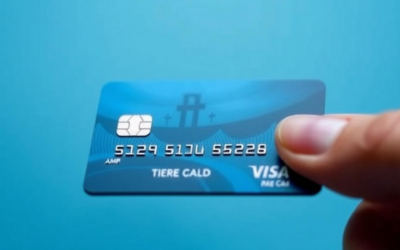Business overdrafts provide businesses in the United Kingdom with a significant amount of flexibility and convenience, which enables them to successfully manage their cash flow and capitalise on possibilities for growth. The ability to negotiate cash flow difficulties with confidence and to concentrate on accomplishing their long-term goals is made possible for businesses by gaining an understanding of how business overdrafts operate and by selecting the appropriate financial partner, such as OneMoneyWay.
What is a business overdraft?
Overdrafts for businesses are a flexible borrowing facility that can be granted by banks or other financial organisations. These overdrafts enable businesses to withdraw cash that are greater than their current account balance, up to a maximum that has been specified. It serves as a layer of security for organisations, allowing them to overcome short-term gaps in their cash flow or expenses that were not anticipated.
How do business overdrafts work?
Unlike personal overdrafts, corporate overdrafts are designed to satisfy the specific financial requirements of businesses rather than the other way around. The interest that is normally charged to businesses is solely on the amount that is borrowed and for the length that it is outstanding. Once the overdraft facility has been granted, businesses are able to draw cash from it whenever they require them.
Benefits of business overdrafts
Adaptable cash flow control
Businesses have the ability to manage changes in their cash flow with the flexibility that is provided by business overdrafts. This flexibility enables businesses to meet unforeseen bills or bridge temporary budget gaps.
Efficient and economical funding
When compared to other types of finance, such as company loans or lines of credit, overdrafts typically provide more cost-effective borrowing alternatives. This is because interest is only charged on the funds that are actually used.
Fast financial access
With a business overdraft in place, companies are able to get rapid access to money whenever they require them, without having to go through lengthy approval processes or meet criteria for collateral.
How to get business overdraft
Evaluating your monetary requirements
If you want to apply for an overdraft for your company, you need first evaluate the current state of your company’s finances and figure out how much of an overdraft limit is necessary to satisfy your short-term cash flow requirements.
Consistent observation and evaluation
Your company’s cash flow should be monitored on a regular basis, and your overdraft usage should be closely examined to ensure that it stays within acceptable limits. If you need finance for a long period of time, you should avoid using overdrafts.
Get your business account with business overdraft at OneMoneyWay: your business banking partner
At OneMoneyWay, we understand the importance of flexible financial solutions for UK businesses. As a leading payment and financial management platform, we offer a range of business account solutions designed to meet your evolving needs, including:
Business accounts: Open a business account with OneMoneyWay to access essential banking services tailored to your business requirements.
Cards: Enjoy the convenience and flexibility of our business cards, equipped with advanced features for expense management and control.
Currency conversion: Seamlessly convert currencies at competitive rates to facilitate international transactions.
SEPA and Swift payments: Make secure and efficient SEPA and Swift payments to partners and suppliers worldwide.
Ready to Elevate Your Business?
Join OneMoneyWay for modern FinTech solutions. Empower your business today!
FAQs
How does a business overdraft differ from a business loan?
While both business overdrafts and loans provide access to funds, overdrafts offer more flexibility and are typically used for short-term financing needs, such as covering temporary cash flow gaps. Loans, on the other hand, involve borrowing a fixed amount of money for a specific purpose and are repaid over a set period.
Is collateral required to secure a business overdraft?
Collateral requirements for business overdrafts vary depending on the lender and the creditworthiness of the business. Some lenders may require collateral, while others may offer unsecured overdraft facilities based on the business’s financial strength.
How can I apply for a business overdraft with OneMoneyWay?
Applying for a business overdraft with OneMoneyWay is simple. Visit our website and follow the easy application process. Our dedicated support team is available to assist you throughout the application process and answer any questions you may have.







